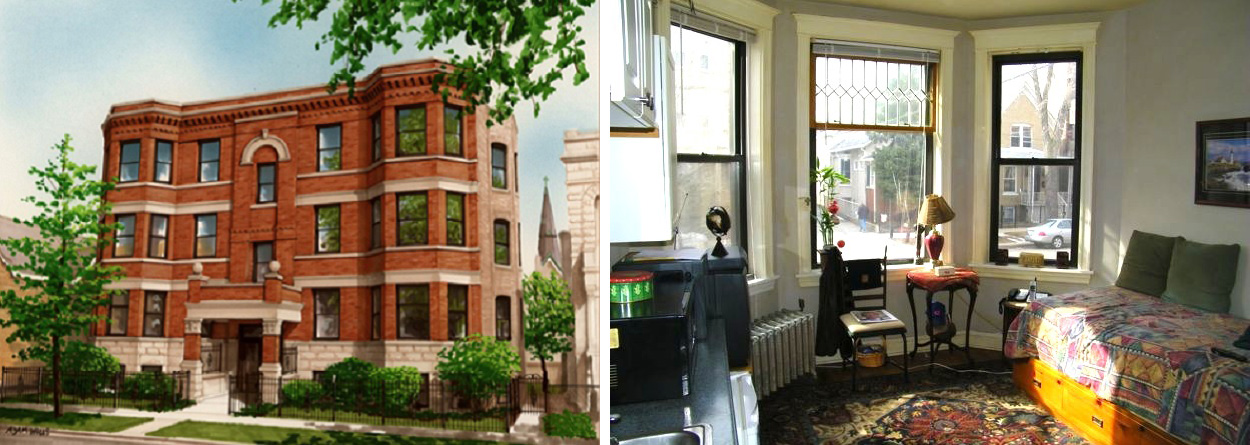
Goal
Preserve single-room occupancy buildings and sustain the affordable housing stock in Chicago
Target
Individuals with incomes at or below 50 percent of area median income (AMI). In the example project, 9 of the 34 units will be made available to individuals earning at or below 30 percent of AMI.
Financing
Corporation for Supportive Housing: $1,500,000 mini-permanent loan
Successes
- The development effectively leveraged the SRO Ordinance to preserve affordable units and meet the housing needs of harder-to-serve populations.
- All 34 units are affordable to individuals at or below 50 percent of AMI. Through an agreement with the Corporation for Supportive Housing, FCC has agreed to make 9 of the units available to individuals earning at or below 30 percent of AMI by the end of 2017.
Lessons Learned
- It is critical for the buyer of a property to engage with the municipality and other parties that helped to develop the ordinance in order to understand what is expected of them and think through strategies for acquisition and property management.
- Future ordinances to preserve affordable housing need to have funding mechanisms attached, which can help buyers looking to preserve affordable housing avoid high borrowing costs.
Policy background
In December 2014, the City of Chicago passed the Single-Room Occupancy Preservation Ordinance (“SRO Ordinance”) to support preservation efforts of affordable units. The SRO Ordinance requires owners to notify tenants in writing 180 days before the sale or transfer of the property. It also requires owners to allow for a period of 180 days following the notice of intent to sell, wherein any buyers intending to maintain the housing as affordable will have an opportunity to tender an offer to purchase the property. The owner of an SRO property is required to engage in good-faith negotiations during this 180-day period. Without a purchase and sale agreement at the end of the 180-day period, the owner has a 120-day period to sell or transfer the property to any party. If no sale or transfer of the property is completed during the 120-day period, the owner is required to cycle through the 180-day and 120-day period requirements as mentioned above until sale or transfer of the property. Please look at Chicago SRO Ordinance for more information about affordability requirements, enforcement and other components of the ordinance.
The development
In January 2016, Full Circle Communities (FCC) acquired 2611 N. Sawyer, a 34-unit SRO building in the Logan Square neighborhood of Chicago. 2611 N. Sawyer was the first acquisition to occur under the SRO Ordinance, using $1.5 million through the Corporation for Supportive Housing’s Mini-Permanent Loan program. FCC had recently completed another supportive housing development in Logan Square nearby to 2611 N. Sawyer, and had developed good relationships with other community organizations and social service providers. Additionally, 2611 N. Sawyer was determined to be a well-maintained, stable property, making the investment low risk and a great opportunity to preserve affordable housing in a neighborhood challenged by rising housing costs.
FCC credits the SRO Ordinance for shining a light on the gradual loss of SRO buildings across the City of Chicago. The SRO Ordinance makes the sale of SRO buildings known to the larger development community, and gives time for developers to try and assemble the necessary financing if they want to keep a building affordable. FCC was able to close on the acquisition of 2611 N. Sawyer quickly because no significant rehab of the building was needed. Acquisitions of SROs that require more complex financing structures may require a longer timeline than affordable developers are afforded through the SRO Ordinance.
Though the SRO Ordinance provided the flexibility that was needed to complete the deal, community outreach was also critical to building trust and obtaining community buy-in. FCC talked with tenants indirectly through local affordable housing organizers. They also engaged with local elected officials and other community members to outline their intentions for buying and managing the property.